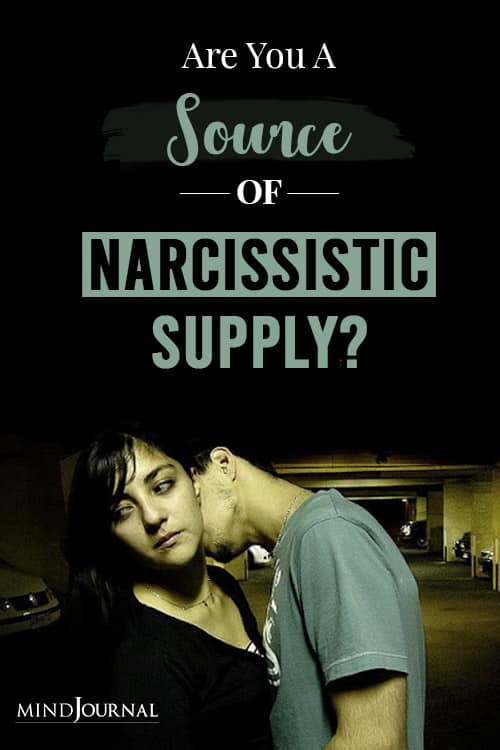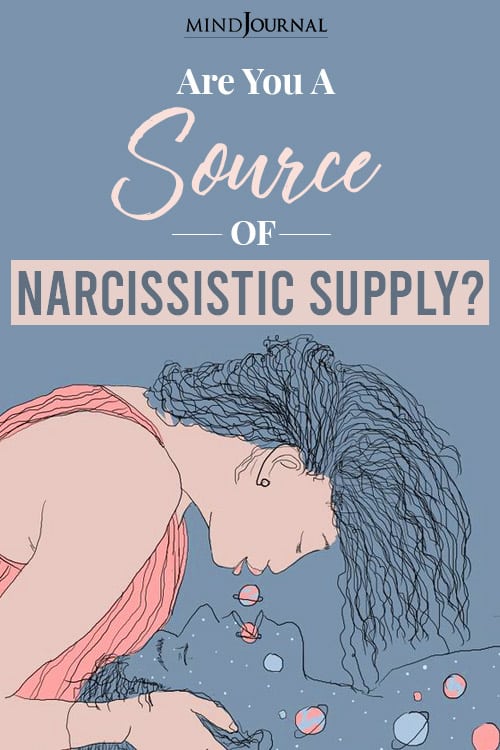Narcissists are extremely needy people. They need constant attention and approval in the name of narcissistic supple and they apply every manipulative tactic to feed their demands. But the terrible thing being is that your tears and frustration are the food that satiates their hunger.
Narcissists hunger to have their needs met. If you’re in a close relationship with a narcissist, they will expect you to supply them. The term “narcissistic supply” is rooted in psychoanalytic theory that concerns the essential needs of babies and young children to maintain their mental and emotional equilibrium.
Loss of necessary supplies in childhood could lead to depression and later attempts to get them through addiction and other means.
Narcissists’ undeveloped self and deficient inner resources require them to be dependent on other people to affirm their impaired self-esteem and fragile ego. They can only validate themselves as reflected in the eyes of others.
Despite their facade of confidence, boasting, and self-flattery, they crave attention, respect, and constant admiration and actually fear that they’re undesirable.
How Narcissists Get Their Supply

Other people are used as objects to provide their supply. Freud identified two main paths to fulfilling narcissistic supplies: Aggression and ingratiation. Eventually, he called them sadistic and submissive.
To be admired and to get their supply, narcissists employ various strategies, including impression management. They ingratiate themselves using their charm, emotional intelligence, bragging, seduction, and manipulation. Receiving attention and admiration boosts their weak self and lack of self-esteem.
They manipulate and try to control what others think in order to feel better about themselves, making narcissists codependent on recognition from others. If you refuse to provide what they want and need, they resort to their secondary means: Aggression with narcissistic abuse.
Read: Narcissists And Selective Memory: A Manipulation Tactic To Gaslight You
They go on the offensive, attack, and belittle you. By discounting you, in their eyes, their self-image is elevated. In relationships, they can become sadistic. As their abuse escalates, their partners and coworkers become passive and submissive to avoid coming under attack and to maintain the relationship.
By assuming a submissive role, you establish an unhealthy dynamic in relationships with a narcissist.
Types of Narcissistic Supply
Because their sense of self is determined by what others think of them, narcissists use relationships for self-enhancement. Everyone must feed them. In addition, they seek validation and attention in their public and professional life.
Other people are used as objects in order to provide their supply. For example, they may need constant compliments or applause, more status, and money, or may check their appearance in the mirror several times a day.
Some examples of narcissistic supply are:
- Praise and compliments
- Accomplishments and professional success (even if by cheating or using unethical means)
- Financial gain by any means
- Status symbols, such as a big home, gold toilet, expensive car, 5 Star dining and hotels
- Acquaintances with celebrities, public figures, and other high-status people and institutions
- Wearing designer labels and expensive accessories and jewelry
- Winning
- Using alcohol, drugs, or other addiction
- Sex
- Provoking arguments, emotional reactions, and chaos
- Receiving awards
- Attention in the news or social media
- Being admired and loved by romantic partners
- Having a mate that is desired by others, such as a trophy wife or influential or successful spouse
- Expressions of gratitude
Narcissists’ Insatiable Needs
To a narcissist, like a drug addict, it’s survival. They crave recognition and have an insatiable need to be admired.
Psychoanalyst Heinz Kohut observed that his narcissistic clients suffered from profound alienation, emptiness, powerlessness, and lack of meaning. Beneath the surface, they lacked sufficient internal structures to maintain cohesiveness, stability, and a positive self-image to support a stable identity.
Narcissists’ early losses, emptiness, and needs are so great and painful that when not fulfilled, they mentally disintegrate. Thus their need for their supply is never-ending. They require continuous reassurance from those around them, but, like a parasite, no matter how much you give, it’s never enough to fill their emptiness and satisfy their hunger.
Read: 10 Signs of Narcissistic Supply
Their need is constant and relentless. Like vampires who are dead inside, narcissists exploit and drain those around them. Once their charm wears thin, notice if you feel drained around a narcissist.
If you continue to sacrifice yourself for them, you, too, will feel empty and dead. You may start to experience what it was like for them to have an invasive, cold, or unavailable narcissistic parent. Anne Rice’s vampire Lestat in The Vampire Trilogy had such an emotionally empty mother, who devotedly bonded with him and used him to survive.
Trying to please them feels thankless, like trying to fill a bottomless pit. The hole is their inner emptiness, of which they’re unaware, but expect others to fill. Of course, it’s impossible. Instead, focus on meeting your own needs and healing your own emptiness.
Get Dealing with a Narcissist: 8 Steps to Raise Self-Esteem and Set Boundaries with Difficult People.
© 2021 Darlene Lancer
Darlene Lancer is a Licensed Marriage and Family Therapist and an expert author on relationships and codependency. She’s counseled individuals and couples for 30 years and coaches internationally. Her books and other online booksellers and her website.
Check out Darlene Lancer’s website, What Is Codependency for more informative and interesting articles.
Written By: Darlene Lancer











Leave a Reply